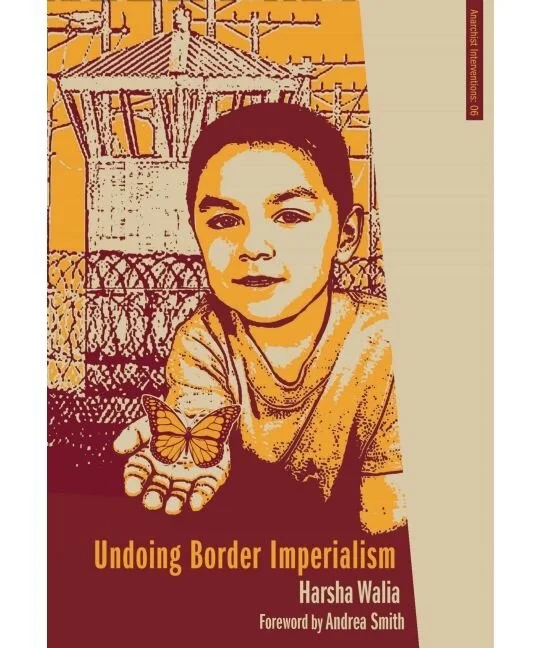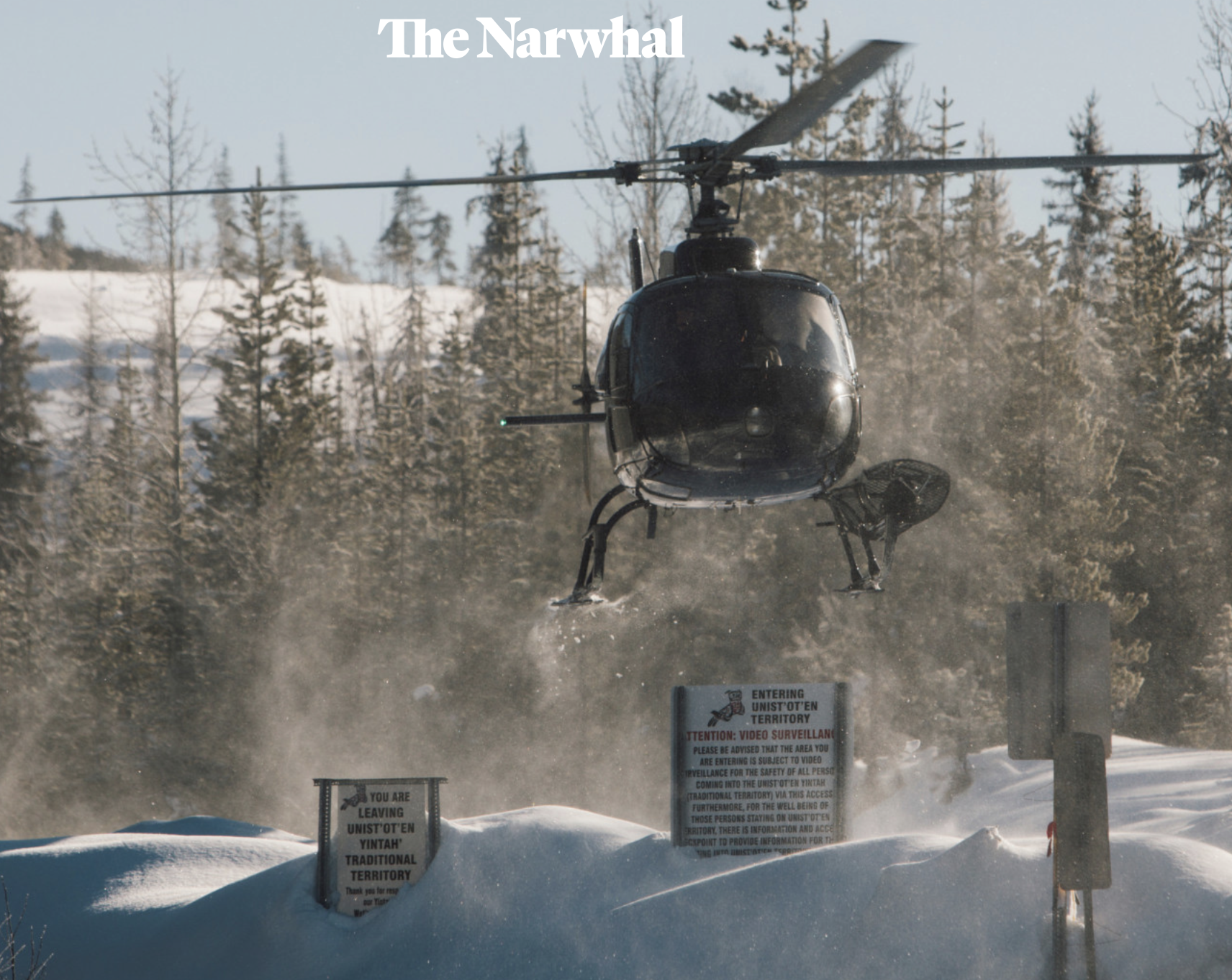RESOURCES
In furthering our ability to work together, here are a few select resources from the deep pool of knowledge to better understand the global #LandBack movement.
SONGS
Wet'suwet'en Hini C'in
Listen now/share/buy songs donated by amazing artists!
Wet’suwet’en Hibi C’in is a collection of songs made in solidarity with the land defenders and water protectors of Wet’suwet’en. All songs are donated by the artists. All artists’ proceeds are directed to frontline organizing efforts on the Yintah.
ARTISTS: donate an original song, artwork or other support for the project. Contact wetsuwetenhibicin@gmail.com.
WEB RESOURCES
LAND BACK: A Yellowhead Institute Red Paper
The project of land back is about reclaiming Indigenous jurisdiction: breathing life into rights and responsibilities. This Red Paper is about how Canada dispossesses Indigenous peoples from the land, and in turn, what communities are doing to get it back. Read The Report. Download tools and resources.
Amnesty “Extraction Extinction” Report
Climate change is an unprecedented global human rights emergency, caused primarily by burning fossil fuels that emit greenhouse gases. Global concentrations of these heat-trapping gases have reached record levels. Despite commitments made under climate agreements to urgently phase out fossil fuels, government actions to limit them and stem the flow of subsidies to the fossil fuel industry have been wholly inadequate.
This report maps the global scale of risks to human rights and critical ecosystems from existing and planned fossil fuel infrastructure. Data analysis by Better Planet Laboratory is presented alongside new, in-depth research and snapshots of ongoing campaigns across the Americas and West Africa, showing the devastating effects of fossil fuel exploration, production, transportation and decommissioning on fenceline communities and the ecosystems on which we all rely.
CASH BACK: A Yellowhead Institute Red Paper
Cash Back is about the value of Indigenous lands.
Picking up from Land Back, the first Red Paper by Yellowhead about the project of land reclamation, Cash Back looks at how the dispossession of Indigenous lands nearly destroyed Indigenous economic livelihoods. Cash Back is about restitution from the perspective of stolen wealth.
DECOLONIZE PALESTINE
Welcome to Decolonize Palestine, a collection of resources for organizers and anyone who wants to learn more about Palestine. Take heart;as our diaspora grows a day longer, our inevitable return draws a day closer.
FILM
KUPER ISLAND: Return to the Healing Circle. Residential School Survivors.
It was the Kuper Island Residential School, and it stood on a remote island off the coast of British Columbia. They called it Alcatraz. For almost a century, hundreds of Coast Salish children were sent to Kuper Island, where they were forbidden from speaking their native language, forced to deny their cultural heritage, and often faced physical and sexual abuse. Some died trying to escape on logs across the water. Many more died later, trying to escape their memories. Métis filmmaker Christine Welsh and Peter C. Campbell join survivors of the school, 20 years after its closure, as they begin to break the silence and embark on an extraordinary healing journey.
FACEBOOK: https://www.facebook.com/HighBanksE
Purchase the DVD: http://movingimages.ca/store/products...
Produced By Peter C Campbell and Christine Welsh 1997 © Gumboot Productions Inc http://www.gumboot.net/
subMedia
is a small collective of determined anarchist filmmakers who strive to consistently produce high-quality content on a shoe-string budget. Because we do not accept money from advertisers, foundations or corporate sponsors, we are funded entirely by our viewers. If you enjoy what we do, please consider supporting us by signing up to be a monthly sustainer, making a one-time donation, or buying some subMedia gear.
sub.media
BOOKS
Niwhts’ide’nï Hibi’it’ën The Ways of Our Ancestors – Second Edition
This book introduces Witsuwit’en people and their history. It explores the Witsuwit’en clan system in depth and how it relates to traditional Witsuwit’en land use, spirituality and values. Oral histories from various eras in Witsuwit’en ancient history are shared, as well as the recent history that formed the Witsuwit’en Nation and the Bulkley Valley, as we know them today.
Copies of this book are available for purchase at a cost of $60.00 each through our Aboriginal Education Office located at 3603-3rd Ave., PO Box 758, Smithers BC V0J 2N0.
Eagle Down is Our Law
This book introduces Witsuwit'en people and their history. It explores the Witsuwit'en clan system in depth and how it relates to traditional Witsuwit'en land use, spirituality and values. Oral histories from various eras in Witsuwit'en ancient history are shared, as well as the recent history that formed the Witsuwit'en Nation and the Bulkley Valley, as we know them today
Whose Land is it Anyway?
This handbook, supported by the British Columbia Federation of Post-Secondary Educators (FPSE), is designed to give you that knowledge. It brings together some of the most important Indigenous academics, activists and allies to explore the impacts of colonization on Indigenous peoples and to look at paths toward decolonization that can right those wrongs and may, some day, lead us toward true reconciliation.
Undoing Border Imperialism
combines academic discourse, lived experiences of displacement, and movement-based practices into an exciting new book. By reformulating immigrant rights movements within a transnational analysis of capitalism, labor exploitation, settler colonialism, state building, and racialized empire, it provides the alternative conceptual frameworks of border imperialism and decolonization. Drawing on the author’s experiences in No One Is Illegal, this work offers relevant insights for all social movement organizers on effective strategies to overcome the barriers and borders within movements in order to cultivate fierce, loving, and sustainable communities of resistance striving toward liberation. The author grounds the book in collective vision, with short contributions from over twenty organizers and writers from across North America.
Harsha Walia is a South Asian activist, writer, and popular educator rooted in migrant justice, Indigenous solidarity, Palestinian liberation, antiracist, feminist, anti-imperialist, and anticapitalist movements and communities for over a decade.
As We Have Always Done
Across North America, Indigenous acts of resistance have in recent years opposed the removal of federal protections for forests and waterways in Indigenous lands, halted the expansion of tar sands extraction and the pipeline construction at Standing Rock, and demanded justice for murdered and missing Indigenous women. In As We Have Always Done, Leanne Betasamosake Simpson locates Indigenous political resurgence as a practice rooted in uniquely Indigenous theorizing, writing, organizing, and thinking.
Indigenous resistance is a radical rejection of contemporary colonialism focused around the refusal of the dispossession of both Indigenous bodies and land. Simpson makes clear that its goal can no longer be cultural resurgence as a mechanism for inclusion in a multicultural mosaic. Instead, she calls for unapologetic, place-based Indigenous alternatives to the destructive logics of the settler colonial state, including heteropatriarchy, white supremacy, and capitalist exploitation.
Unsettling Canada
As the son of George Manuel, who served as president of the National Indian Brotherhood and founded the World Council of Indigenous Peoples in the 1970s, Arthur Manuel was born into the struggle. From his unique and personal perspective, as a Secwepemc leader and an Indigenous activist who has played a prominent role on the international stage, Arthur Manuel describes the victories and failures, the hopes and the fears of a generation of activists fighting for Aboriginal title and rights in Canada.
Unsettling Canada chronicles the modern struggle for Indigenous rights covering fifty years of struggle over a wide range of historical, national, and recent international breakthroughs.
Keetsahnak / Our Murdered and Missing Indigenous Sisters
the tension between personal, political, and public action is brought home starkly as the contributors look at the roots of violence and how it diminishes life for all. Together, they create a model for anti-violence work from an Indigenous perspective. They acknowledge the destruction wrought by colonial violence, and also look at controversial topics such as lateral violence, challenges in working with "tradition," and problematic notions involved in "helping." Through stories of resilience, resistance, and activism, the editors give voice to powerful personal testimony and allow for the creation of knowledge.
It's in all of our best interests to take on gender violence as a core resurgence project, a core decolonization project, a core of Indigenous nation building, and as the backbone of any Indigenous mobilization. —Leanne Betasamosake Simpson
Me and White Supremacy
When Layla F. Saad began an Instagram challenge called #MeAndWhiteSupremacy, she never predicted it would spread so quickly.
Using a step-by-step reflection process, she encouraged people with white privilege to examine their racist thoughts and behaviours. Based on the original workbook, Me and White Supremacy leads readers through a journey of understanding their white privilege and participation in white supremacy, so that they can stop (often unconsciously) inflicting damage on Black, Indigenous and People of Color, and in turn, help other white people do better, too. The book goes beyond the original workbook by adding more historical and cultural contexts, sharing moving stories and anecdotes, and includes expanded definitions, examples, and further resources.
ARTICLES
Decolonization
Decolonization brings about the repatriation of Indigenous land and life; it is not a metaphor for other things we want to do to improve our societies and schools. Because settler colonialism is built upon an entangled triad structure of settler-native-slave, the decolonial desires of white, non-white, immigrant, postcolonial, and oppressed people, can similarly be entangled in resettlement, reoccupation, and reinhabitation that actually further settler colonialism. The metaphorization of decolonization makes possible a set of evasions, or “settler moves to innocence”, that problematically attempt to reconcile settler guilt and complicity, and rescue settler futurity.
United Nations Declaration on the Rights of Indigenous People
The United Nations Declaration on the Rights of Indigenous Peoples (UNDRIP) was adopted by the General Assembly on Thursday, 13 September 2007, by a majority of 144 states in favour, 4 votes against (Australia, Canada, New Zealand and the United States) and 11 abstentions
Industry, government pushed to abolish Aboriginal title at issue in Wet’suwet’en stand-off, docs reveal
Documents obtained by The Narwhal reveal representatives of resource industries and government sought the ‘surrender’ of Indigenous land rights in the wake of the precedent-setting Delgamuukw decision, which affirmed Aboriginal title on unceded territory for the Narwhal
By Martin Lukacs and Shiri Pasternak
for the Narwhal
















